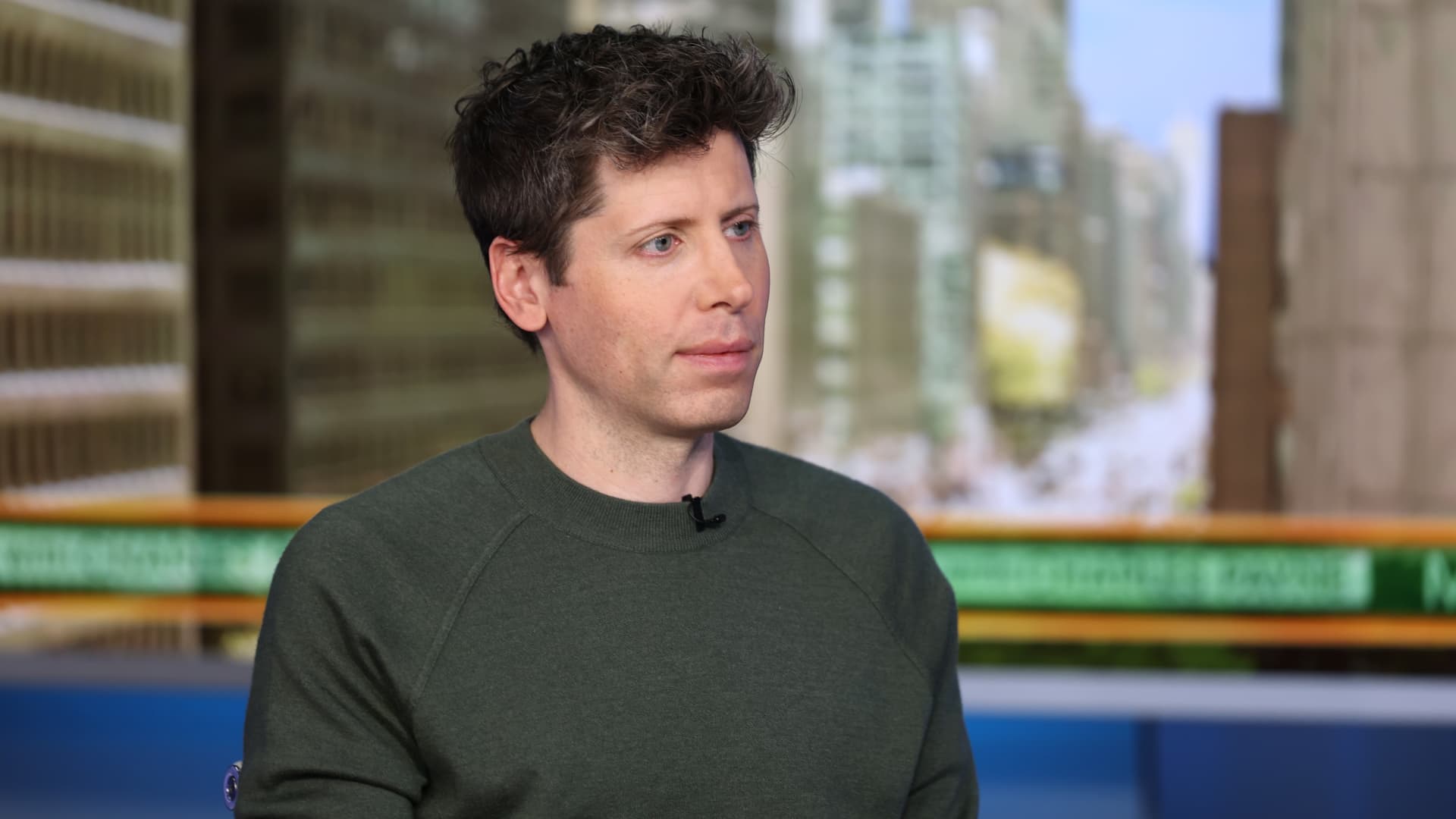Inside Musk’s $97.4 Billion Gambit: A Move to Outmaneuver OpenAI’s Leadership
Elon Musk’s ambitious $97.4 billion proposal for OpenAI has sent shockwaves through the tech industry, igniting discussions about strategic competition and the future of artificial intelligence. As the founder of Tesla and SpaceX, Musk is no stranger to bold moves, but this latest bid raises critical questions about his intentions and the potential impact on OpenAI’s leadership. Sam Altman, CEO of OpenAI, has provided insights into the motivations behind this colossal bid, suggesting that it may be a strategic effort to curb a formidable rival. In this article, we will explore the implications of Musk’s gambit and the broader context of competition in the AI landscape.
The Landscape of AI Competition
The artificial intelligence sector is rapidly evolving, with major players like Google, Microsoft, and Amazon pouring resources into developing cutting-edge technologies. OpenAI, initially founded as a non-profit organization, has transitioned into a capped-profit model to attract investment while prioritizing safety and ethical considerations in AI development. This unique position has allowed OpenAI to establish itself as a leader in the field, particularly with the success of its language models like GPT-3 and DALL-E.
Musk’s involvement with OpenAI dates back to its founding in 2015, where he was a co-chairman. However, his departure from the organization in 2018 raised eyebrows, especially as he expressed concerns about the potential dangers of unchecked AI development. Now, his attempt to acquire OpenAI suggests a dramatic shift in strategy. Is this a genuine effort to steer the organization towards a safer future, or a calculated move to eliminate competition?
Understanding the $97.4 Billion Proposal
The staggering $97.4 billion proposal Musk has put forth is not just about acquiring a company; it represents an unprecedented investment in the future of AI. This figure, which dwarfs typical acquisitions in the tech sector, signals Musk’s serious intentions. But what might he hope to achieve with such a bold gambit?
- Enhancing Control: By acquiring OpenAI, Musk would gain significant control over one of the leading AI research organizations in the world. This control could allow him to steer AI development in a direction aligned with his vision.
- Combating Rivalry: Musk’s proposal could be seen as a way to neutralize a rival that threatens his interests. OpenAI has been at the forefront of AI advancements, and its success could pose challenges to Musk’s other ventures.
- Shaping AI Ethics: Musk has been vocal about the ethical implications of AI. By taking over OpenAI, he could promote safety protocols and ethical guidelines that align with his beliefs.
Sam Altman’s Perspective
Sam Altman, the CEO of OpenAI, has been candid about the motivations behind Musk’s proposal. He suggests that this bid reflects Musk’s recognition of the growing influence and capabilities of OpenAI. According to Altman, Musk may view the acquisition as a necessary step to ensure that AI development remains within a framework that prioritizes safety and ethical considerations.
Altman’s insights also emphasize the collaborative nature of AI development. He believes that the future of AI should involve partnerships between different organizations, rather than a single entity monopolizing the field. This perspective presents a counter-narrative to Musk’s aggressive acquisition strategy, advocating for a more inclusive approach to AI innovation.
The Risks and Rewards of Musk’s Gambit
While Musk’s $97.4 billion gambit may be seen as a power play, it comes with inherent risks and rewards. Here are a few considerations:
- Potential for Innovation: If successful, Musk’s leadership could drive OpenAI to new heights, potentially accelerating breakthroughs in AI technology.
- Market Reactions: Such a monumental proposal could disrupt stock prices and investor confidence in other tech companies. The ramifications of Musk’s bid could affect not only OpenAI but also its competitors.
- Ethical Concerns: Critics argue that concentrating power within a single entity could hinder transparency and accountability in AI development.
The Broader Implications for the Tech Industry
Musk’s bid for OpenAI could signal a new era of aggressive tactics in the tech industry, where companies may resort to high-stakes acquisitions to maintain competitive edges. The implications of such a move extend beyond just OpenAI and Musk’s ventures. Here are some potential impacts:
- Increased Competition: Other tech giants may feel pressured to pursue similar strategies, leading to a wave of mergers and acquisitions aimed at consolidating power in the AI space.
- Focus on Regulation: As the tech landscape evolves, regulators may take a closer look at the implications of such high-profile deals, particularly concerning competition and consumer protection.
- Innovation vs. Monopoly: The balance between fostering innovation and preventing monopolistic practices will be an ongoing debate, as industry leaders navigate the complexities of AI growth.
The Future of OpenAI and AI Development
As we look ahead, the future of OpenAI and the broader AI landscape remains uncertain. Musk’s gambit could reshape the organization’s mission and direction, but it also raises questions about the ethical implications of concentrating power in the hands of one individual or corporation.
Ultimately, the success of Musk’s proposal will depend on various factors, including market dynamics, regulatory scrutiny, and the reactions of other tech leaders. As the situation unfolds, stakeholders across the industry will be watching closely, eager to see how this ambitious move plays out.
Conclusion
Elon Musk’s $97.4 billion gambit to acquire OpenAI is more than just a financial maneuver; it reflects the intense competition in the tech industry and the ever-evolving landscape of artificial intelligence. With insights from Sam Altman shedding light on the motivations behind this colossal bid, it becomes clear that the implications of this move are far-reaching. As companies grapple with the challenges of innovation, ethics, and competition, Musk’s ambitions may well define the future trajectory of AI development. Only time will tell if this gambit will succeed in reshaping OpenAI and the broader tech landscape.
See more Future Tech Daily

